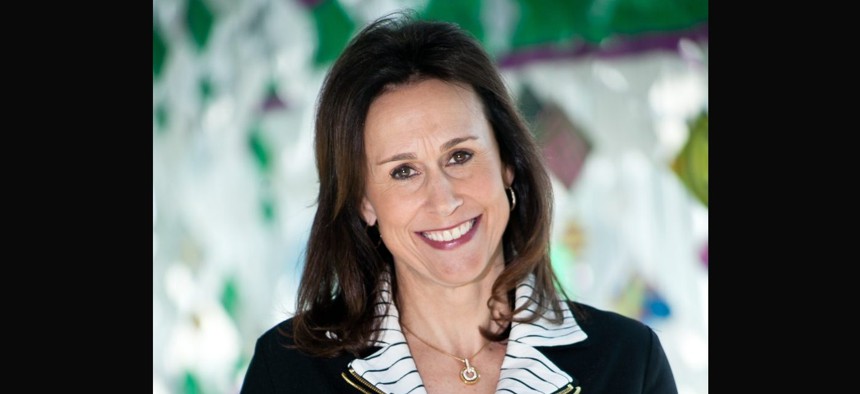
Mary Davie, longtime federal acquisition executive, is leaving government at the close of 2022 Photo courtesy: NASA
Mary Davie, Longtime Federal Acquisition Leader, to Exit Government
Davie pioneered acquisition strategies like shared services, category management and others that are now fixtures of the federal buying landscape.
Mary Davie, who led the federal government's information technology acquisition workforce at the General Services Administration and served in a senior tech role at NASA, is retiring at the end of 2022 after 34-and-a-half years in federal service.
As assistant commissioner of the Federal Acquisition Service's Office of Integrated Technology Services from 2011 to 2017, Davie had a hand in developing and maturing now-familiar buying strategies like strategic sourcing, category management, shared services and more.
Along the way, Davie won multiple Federal 100 honors from FCW, capping her award run with an Eagle Award in 2016.
At NASA, where Davie spent the last years of her career as the No. 2 official in the space agency's Mission Support Directorate, she had a front row seat for some of the most exciting missions in the agency's recent history. She helped lead an organization with a $3 billion budget, a 7,000-strong workforce and cross-cutting responsibilities.
The move to NASA at the tail end of her government career was a homecoming of sorts. Her father worked at NASA going back to the early days of the space agency.
"I grew up in that agency," she said. "I was working with people I'd known for my whole life."
At GSA under the Trump administration, Davie had the job of managing an abortive effort to merge the Office of Personnel Management into GSA as a human resources service. The move was deeply unpopular with the rank and file workforce and was bitterly opposed by Democrats on Capitol Hill and federal employee unions. Launched in 2018, the merger effort would have centralized workforce policy planning in the White House and consolidated federal employees’ retirement services, health care and insurance programs at GSA.
"Looking back, that was a hard time for a lot of people, and I think it could have been approached differently, I don't know if there would have been a different outcome," Davie said, adding, "that was certainly one of the more challenging experiences that I had in government."
Overall, Davie thinks of her government career in a highly positive light.
"I couldn't have asked for a better career and better opportunities, working on a governmentwide scale," Davie told FCW. "It's been a lot of fun, but I decided that maybe it's time to do something a little different and contribute a little differently."
Davie didn't announce firm future job plans, but said she plans to do some independent consulting, work with professional development organizations and ramp up her work at Virginia Tech, her alma mater, where she helps mentor future technologists—especially young women.
"When I started in acquisition, and acquisition of technology, it was the late ‘80s, early ‘90s," Davie said. "Going to events and project meetings, there weren't a lot of women, and I noticed that."
Davie said she was "lucky" to find her own crew of women mentors and intends to continue to do her part to help the next generation of women leaders in government service.
"That kind of thing is really important to me—that I can be available and mentor others and make sure women see themselves in these roles."







